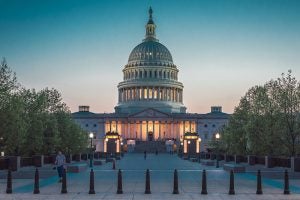The Clean Water Act continues to provide critical protections for America’s drinking water, lakes and streams. While this bedrock, bipartisan law put the worst industrial water pollution largely behind us, the hard work of addressing nonpoint source pollution remains.
Waters of the U.S. (WOTUS) regulations were created to help mitigate nonpoint source pollution and protect isolated wetlands, but the long-running controversy over the scope of WOTUS illustrates the limitations to using broad and blunt regulations to solve complex problems.
Nutrient runoff from farms is one of the causes of dead zones and contaminated groundwater – the drinking water source for nearly half of all Americans. In addition, 43 million Americans, mostly in rural communities, drink water from private wells – 16 percent of which contain groundwater that exceeds federal nitrate limits.
As WOTUS revisions make their way through a public comment period and face likely legal challenges, water quality improvements can’t wait. Here’s why, and what we can do in the meantime. Read More











 On paper, I appear to be the picture perfect stereotype of an east coast liberal: I’ve been working at environmental nonprofits for over 20 years, I’m an Ivy League grad, and I live in the “bluest” county in Virginia. When it comes to first impressions in the world of agriculture, I’ve been met countless times with skepticism and even contempt.
On paper, I appear to be the picture perfect stereotype of an east coast liberal: I’ve been working at environmental nonprofits for over 20 years, I’m an Ivy League grad, and I live in the “bluest” county in Virginia. When it comes to first impressions in the world of agriculture, I’ve been met countless times with skepticism and even contempt.